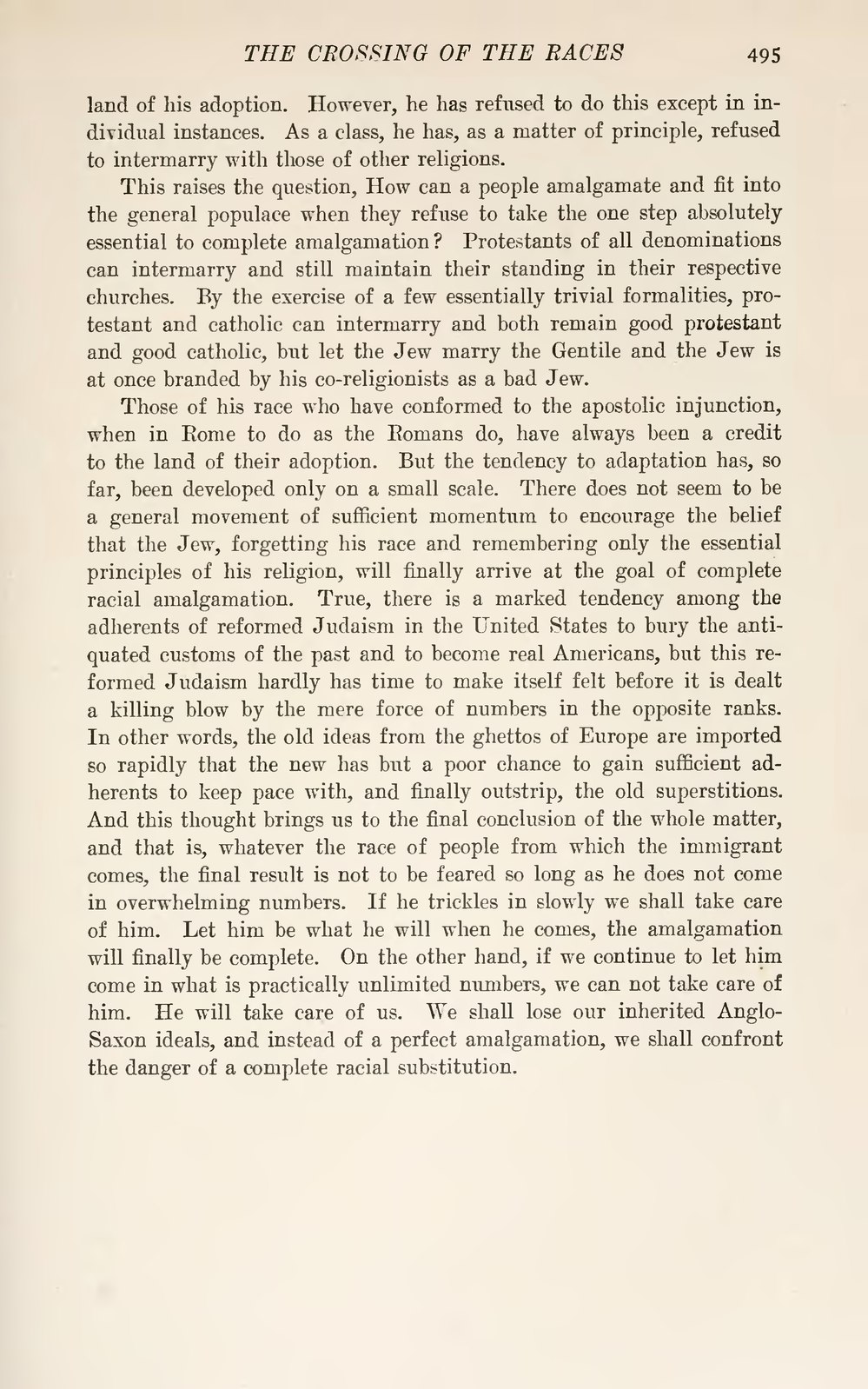land of his adoption. However, he has refused to do this except in individual instances. As a class, he has, as a matter of principle, refused to intermarry with those of other religions.
This raises the question, How can a people amalgamate and fit into the general populace when they refuse to take the one step absolutely essential to complete amalgamation? Protestants of all denominations can intermarry and still maintain their standing in their respective churches. By the exercise of a few essentially trivial formalities, protestant and catholic can intermarry and both remain good protestant and good catholic, but let the Jew marry the Gentile and the Jew is at once branded by his co-religionists as a bad Jew.
Those of his race who have conformed to the apostolic injunction, when in Rome to do as the Romans do, have always been a credit to the land of their adoption. But the tendency to adaptation has, so far, been developed only on a small scale. There does not seem to be a general movement of sufficient momentum to encourage the belief that the Jew, forgetting his race and remembering only the essential principles of his religion, will finally arrive at the goal of complete racial amalgamation. True, there is a marked tendency among the adherents of reformed Judaism in the United States to bury the antiquated customs of the past and to become real Americans, but this reformed Judaism hardly has time to make itself felt before it is dealt a killing blow by the mere force of numbers in the opposite ranks.
In other words, the old ideas from the ghettos of Europe are imported so rapidly that the new has but a poor chance to gain sufficient adherents to keep pace with, and finally outstrip, the old superstitions. And this thought brings us to the final conclusion of the whole matter, and that is, whatever the race of people from which the immigrant comes, the final result is not to be feared so long as he does not come in overwhelming numbers. If he trickles in slowly we shall take care of him. Let him be what he will when he comes, the amalgamation will finally be complete. On the other hand, if we continue to let him come in what is practically unlimited numbers, we can not take care of him. He will take care of us. We shall lose our inherited Anglo-Saxon ideals, and instead of a perfect amalgamation, we shall confront the danger of a complete racial substitution.
